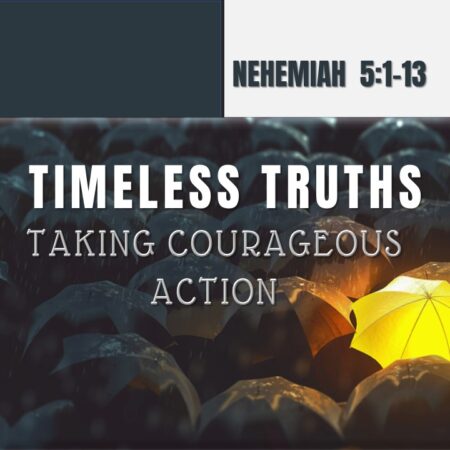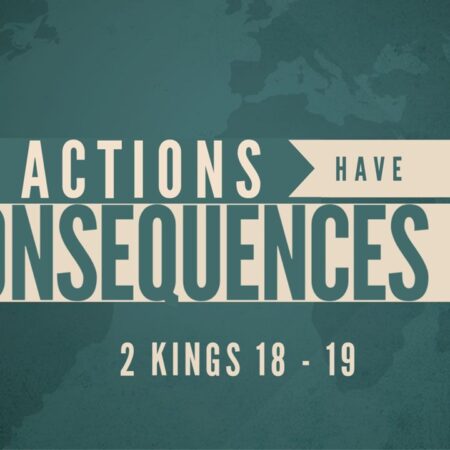Nehemiah 5:1-13 NLT Exodus 22:25 Deuteronomy 23:19-20 Leviticus 25:35-40 NLT “7 Men and The Secret Of Their Greatness” by Eric Metaxas “We live in a culture where strength is feared…
"C.S. Lewis" Tagged Sermons (Page 2)
1 Peter 3:14-22 Romans 5:10-14 2 Peter 2:4-5 Jude 6 1 Peter 3:22 Follower of Jesus Christ must learn to withstand persecution and to persevere in their faith. Chuck Swindoll…
1 Peter 3:8-12 2 Peter 1:3-8 Philippians 4:8-9 Psalm 141:1-4 Chuck Swindoll ‘Without a doubt, the process of spiritual growth is a long and often painful one. Enroute to maturity,…
1 Peter 1:8-12 2 Corinthians 10:3-5 Luke 24:44-46 1 Corinthians 2:6-10 1 Peter 1:12 In ancient Greek religion and mythology, the twelve Olympians are the major deities of the Greek…
Matthew 28:1-15 John 3:16-17 John 3:2-15 John 19:38-42 1 Peter 3:18-22 THE SCREWTAPE LETTERS which is a compilation of 31 letters written by a SENIOR DEMON NAMED SCREWTAPE TO HIS…
Chuck Swindoll in his commentary on Malachi writes:
“The people of Judah began to be exiled from the Promised Land in 605 B.C. and returned from Babylon about seventy years later. By the time of Malachi, they had been back in the land for more than a hundred years and were looking for the blessings they expected to receive when they returned.
Though the temple had been rebuilt, the fervor of those early returning Israelites had given way to a thorough apathy for the things of God. This led to rampant corruption among the priesthood and spiritual lethargy among the people.
Malachi came along at a time when the people were struggling to believe that God loved them. The people were focused on their unfortunate circumstances and refused to account for their own sinful deeds.
So, God pointed the finger back at them, and through Malachi, told the people where they had fallen short of their covenant with Him. If they hoped to see change, they needed to take responsibility for their own actions and serve God faithfully according to the promise that their fathers had made to Him on Mount Sinai all those years before.”
In his book ‘DARK AGENDA’ – “The war to destroy Christian America”, author David Horowitz (published 2018) writes:
“Religion must die in order for mankind to live”, proclaims left-wing commentator and comedian Bill Maher in RELIGULOUS, the most watched commentary feature of 2008.
Both title and script were transparent attempts to stigmatize religious people as dangerous morons whose views could not be taken seriously. Through the film, Maher travels to Jerusalem, the Vatican, and Salt Lake City, as well as other centers of religion, interviewing believers and making them appear foolish. How did he gain interviews with his victims? HE LIED TO THEM, SAYING HE WAS MAKING A FILM CALLED ‘A Spiritual Journey.”
According to Maher, “THE IRONY OF RELIGION IS THAT BECAUSE OF ITS POWER TO DIVERT MAN TO DESTRUCTIVE COURSES, THE WORLD COULD ACTUALLY COME TO AN END.” He predicts the destruction of the human race as a result of “religion-inspired nuclear terrorism.” Hence the need for religion to die if mankind is to live. Maher’s views accurately reflect the attitudes of a movement called THE NEW ATHEISM, whose leaders are prominent scientists and best-selling authors, far superior in intellect to Maher but equally contemptuous of religion and religious believers.
Like Maher’s film, the New Atheism movement seeks to discredit all religious belief by caricaturing its adherents as simpletons, and worse. The goal of the New Atheism is to delegitimize and extinguish the religious point of view.”
Most people don’t realize that if God is dead,
THEN EVERYTHING IS PERMITTED, BECAUSE THERE ARE NO GROUNDS FOR CALLING ANYTHING – AN ACT, A STATEMENT, AN EVENT, A CHOICE, EITHER GOOD OR BAD, RIGHT OR WRONG, VALUABLE OR WORTHLESS, IMPORTANT OR UNIMPORTANT.
Richard Dawkins “The God Delusion” (2006)
“Do we know of any……examples where stupid ideas have been known to spread like an epidemic? Yes, by God! Religion. Religious ideas are irrational. Religious believes are dumb and dumber. Religion drives otherwise sensible people into celibate monasteries or crashing into New York skyscrapers. Religion motivates people to whip their own backs, to set fire to themselves or their daughters, to denounce their own grandmothers as witches, or, in less extreme cases, simply to stand or kneel, week after week, through ceremonies of stupefying boredom.”
C.S. Lewis in his book “The Abolition of Man” writes:
“The triumph of personal desire over objective validity as a standard of behavior creates what is tantamount to a moral vacuum into which will rush disordered passions bloated in their abnormal freedom from any constraint.
The three passions are: THE LUST FOR SENSATION, THE LUST FOR MANIPULATIVE KNOWLEDGE, AND THE WILL TO POWER, respectively.
The egotistical will to power and pleasure supersedes any less explicit idea or sentiment of obligation to some criterion or good outside of self.
It assumes that the pleasure of self is the highest good and that life is an aesthetic phenomenon; under such conditions, society becomes a jungle in which eventually a contest for the survival of the fittest can only favor the Nazi, the Hell’s Angel, the robber baron, and the gangsters.”
King Herod was the tetrarch of Galilee meaning “ruler of a fourth,” for the kingdom was divided) He was King of Judea and he ruled the territory with Roman approval. While Judea as an independent kingdom it was under heavy Roman influence and HEROD came to power WITH ROMAN SUPPORT. It was in Herod’s territory where Jesus was ministering. We all know about Herod the Great, the one who was in power when Jesus was born and who slaughtered the innocent children after the Magi told him about the Christ child, but this is his son, Herod Antipas. What do we know about him? Well, when Jesus calls him “that fox,” he is not just saying that he is as sly as a fox but Jesus is actually insulting him, for a fox is an unclean animal in the Israelite holiness codes. Herod the Great (Herod Antipas’ father) was by descent an EDOMITE, whose ancestors had converted to Judaism. Herod was raised a Jew.
C.S. Lewis, “The Abolition of Man”
“Man’s conquest of Nature, if the dreams of some scientific planners are realized, means the rule of a few hundreds of men over billions upon billions of men.”
As John Whitehead wrote:
“Like it or not, the COVID-19 pandemic with its veiled threat of forced vaccinations, contact tracing, and genetically encoded vaccines is propelling humanity at warp speed into a whole new frontier – a surveillance matrix – the likes of which we’ve only previously encountered in science fiction. Those who eye these developments with lingering mistrust have good reason to be leery.
The government has long had a tendency to unleash untold horrors upon the world in the name of global conquest, the acquisition of greater wealth, scientific experimentation, and technological advances, all packaged in a guise of the greater good.
Indeed, “we the people” have been treated like lab rats by government agencies for decades now: caged, branded, experimented upon without knowledge of consent, and then conveniently discarded and left to suffer from the after-effects.
“There is a sinister world beyond that which we perceive, one in which power players jockey for control over the one commodity that is a necessary ingredient for total domination: YOU.
By you, I mean you the individual in all your SINGULAR HUMANNESS.”
“Remaining singularly human and retaining your individuality and dominion over yourself – mind, body, and soul – in the face of corporate and government technologies that aim to invade, intrude, monitor, manipulate and control us may be one of the greatest challenges before us.”
These COVID-19 vaccines, which rely on messenger RNA technology that influences everything from viruses to memory, are merely the tipping point.
The groundwork being laid with these vaccines is a prologue to what will become the police state’s conquest of a new, relatively unchartered, frontier; mental, emotional, of the human race.”
If you were unnerved by the rapid deterioration of privacy under the Surveillance State, prepare to be terrified by the surveillance matrix that will be ushered in on the heels of the governments, rollout of this COVID-19 vaccine.”
The term “SINGULARITY” – that is, computers simulating human life itself – was coined years ago by mathematical geniuses Stanislaw Ulam and John von Neumann.
“The ever accelerating progress of technology gives the appearance of approaching some essential singularity in the history of the race beyond which human affairs, as we know them, could not continue.
The plan is to develop a computer network that will exhibit intelligent behavior equivalent to or indistinguishable from that of human beings by 2029. And this goal is to have computers that will be a billion times more powerful than all of the human brains on earth.”
John von Neumann
Science and Technology Journalist Marcelo Gleiser published an article under the title :”The Transhuman Future; BE More Than You Can Be”
“How is it that we define a human? Is it our body? Our genome? Our behaviors? Our self-awareness? Our compassion? Our minds? All of these and then something more? What now may be obvious to most people about being human will become less so as we become progressively more integrated with technology both inside and outside our bodies.”
“The future? Transhumanism will only grow. Technological devices will be implanted in our heads and bodies, our used peripherally, like Google Glass, extending our senses and cognitive abilities. Why see only in the visible portion of the electromagnetic spectrum? Let’s go ultraviolet! Infrared! Let’s extend our hearing range, our memory capacity, our immune defenses, our life span, our brainpower.” Marcelo Gleiser
Ray Kurzweil is the brainchild behind what Google is doing. This is what he sees:
“Google will know all the answer to your question before you have asked it. It will have read every email you’ve ever written, every document, every idle thought you’ve ever tapped into a search-engine box. It will know you better than your intimate partner does. Better, perhaps, than even yourself.
Ray Kurzweil wrote in his book titled:
“SINGULARITY IS NEAR: When Humans transcend Biology”
“Artificial circuits replicating themselves at a molecular level will merge with the biological circuits that constitute our nervous systems, giving rise to an ENHANCED HUMAN SUPER INTELLIGENCE. Once this starts happening, what we now call the Internet will in effect become telepathic, giving these enhanced humans instantaneous access to all available knowledge and information as they fashion their brave new world. You see how explosive this gets? And its just the beginning.
Once the process gets underway, the evolving superintelligence keeps expanding until it permeates the entire planet and, still accelerating, eventually the universe.
That movement should one day facilitate rapid travel beyond our own galaxy, taking the process literally everywhere.”
C.S. Lewis published the out of print book titled:
“The Humanitarian Theory of Punishment” sub-titled: “God in the Dock”
“Of all tyrannies, a tyranny sincerely exercised for the good of its victim may be the most oppressive. It may be better to live under robber barons than under omnipotent moral busybodies. The robber baron’s cruelty may sometimes sleep, his cupidity may at some point be satiated, but those who torment us for our own good will torment us without end, for they do so with the approval of their conscience.”
January 29, 2020 Timothy Akinyomi published an opinion article in the “Businessday.ng” In the article he quoted Ronald Coase, Professor of Economics at the University of Chicago Law School, “If you torture data long enough, it will confess to anything”.
Louis Mencken was an American journalist, essayist, satirist, cultural critic, and scholar of American English. He commented widely on the social scene, literature, music, prominent politicians, and contemporary movements. Wikipedia. “Democracy is the theory that the common people know what they want and deserve to get it good and hard.”
On April 2, 2020, Madeline Chambers wrote an article in the “Thomson Reuters Foundation News” titled:
“Germans Snitch on Neighbors Flouting Virus Rules, in Echo of the Stasi Past”
In the article the reporter explained that “Munich police took up to 150 calls every day last week from citizens reporting alleged breaches of corona rules.”
Douglas Axe, William Briggs and Jay Richards, have just published a book under the title:
“THE PRICE OF PANIC” subtitled:
“How the Tyranny of Experts turned a Pandemic into a Catastrophe”
Under the chapter: “What about Masks?” they write:
“At first, neither WHO nor the CDC encouraged masks for healthy people, perhaps because it’s so easy to misuse them and they feared shortages among healthcare workers. Moreover, the WHO report says: “There is a moderate overall quality of evidence that face masks do not have a substantial effect on transmission of influence.”
The message from WHO and the CDC did not inspire confidence. They seemed to be saying both that masks don’t work, and that people shouldn’t hoard them because healthcare workers need them. Surgeon General Jerome Adams managed to distill this confusing message into a single tweet.
On February 28, he wrote:
“Seriously people – STOP BUYING MASKS! They are NOT EFFECTIVE in preventing general public from catching #Coronovirus, but if healthcare providers can’t get them to care for sick patients, it puts them and our communities at risk.”
It looks like the CDC was trying to herd sheep rather than reason with adults.
In the end, face coverings may have been as much about signaling and social control as about science and safety.”
Under the chapter: “High School Science Fair” they write:
“Perhaps the weirdest fact about coronavirus models was described in a NEW YORK TIMES article: “THE UNTOLD STORY OF THE BIRTH OF SOCIAL DISTANCING.”
The idea started as “an important discovery kicked off by a high school research project pursued by the daughter of a scientist at the Sandia National Laboratories.”
In 2006, fourteen-year old Laura Glass developed a model of social networks in her high school in Albuquerque. That’s impressive. But what’s troubling is that this science-fair project gave rise to the template of shutting the world down on the signal from health authorities.
This dystopian progression started when Laura’s dad, Sandia National Laboratories scientist David Glass, took notice. The two expanded on the idea by applying the model to a pandemic, and they published a paper on it with two other authors in a CDC journal. It’s called: “Targeted Social Distancing Designs for Pandemic Influenza.”
“The excited authors of this paper sent their simulation to a
Dr. D.A. Henderson, who was, as the New York Times explains, “the leader of the international effort to eradicate smallpox and had been named by (President) Bush to help oversee the nations biodefense efforts after the 2001 terrorist attacks.”
Henderson pushed back, saying that “it made no sense to force schools to close or public gatherings to stop.” Indeed, if authorities adopted such policies, he rightly discerned, the result would be “possibly serious economic problems.”
Henderson had vast scientific expertise and broad and pertinent experience dealing with such crisis. His advice? We should “TOUGH IT OUT: LET THE PANDEMIC SPREAD, TREAT PEOPLE WHO GET SICK AND WORK QUICKLY TO DEVELOP A VACCINE TO PREVENT IT FROM COMING BACK.”
Francis Schaeffer in his book published in 1968 “The God Who is There” writes:
“Demonstrating God’s character must be existential. As far as living is concerned, we are on the knife-edge of time.
What will matter is our relationship to the Lord Jesus, individually and then corporately, at this existential moment. What counts, as men look upon us individually and corporately, is whether we are exhibiting God and His character NOW. The Christian position is not static, but is LIVING.”
“Of all tyrannies, a tyranny sincerely exercised for the good of its victims may be the most oppressive. It would be better to live under robber barons than under omnipotent moral busybodies. The robber baron’s cruelty may sometimes sleep, his cupidity may at some point be satiated; but those who torment us for our own good will torment us without end for they do so with the approval of their own conscience.” C.S. Lewis
“Only a mob and the elite can be attracted by the momentum of totalitarianism itself. The masses have to be won by propaganda.” Hannah Arendt
I think Ravi Zacharias said it right when writing about the devastating consequences of Pluralism:
“A friend was considering enrolling his kids in a reading program. He asked, “What are they reading?” The leader of the program responded: “ANYTHING, JUST AS LONG AS THEY ARE READING.” It is interesting that we would never respond that way about eating. We would never think it is OK to eat anything, just as long as we are eating. Why do we think, as a society, we are happy to judge right and wrong when it comes to what we put in our bodies but are averse to judging right and wrong with respect to what we put in our minds and souls?”
God was at work on behalf of his people but the consequences of their actions could not be nullified.
• The prophet Elijah left this earth without dying (2 Kings 2:1-18)
• The waters of the Jordan River rolled back twice (2 Kings 2:8, 14)
• The prophet Isaiah was living during the same time period.
• The prophets Joel, Micah, Nahum, Habakkuk, Zephaniah, and Jeremiah prophesied in Judah, warning people of the coming consequences of their actions.
• The prophet Elisha was living during that time period.
• Israel’s kings are recorded in 2 Kings as having led the people into idolatry.
• Judah, on the other hand, had some very loyal kings; Joash, Uzziah, Hezekiah, and Josiah.
It is this Hezekiah who held off the Assyrians by fortifying Jerusalem and building up his military. It is this Hezekiah who was faithful to Yahweh and prayed to him when the king of Assyria came to destroy the city of Jerusalem. And a look how this confrontation came down will teach us a lot about our time and HOW IMPORTANT A FEW LOYAL LEADERS, political and religious, are during such times. While the consequences of the nations actions cannot be avoided, they can be delayed by godly people interceding before God Almighty on behalf of the nation.
Dallas Willard “The Allure of Gentleness”
Therefore; Christianity is false, since God is either not benevolent or not powerful, to which the presence of suffering testifies.
“God’s love is not a sentiment, but a well-reasoned devotion to the good or well-being of its objects. We have a terrible time understanding love, because we confuse it with desire. DESIRE AND LOVE ARE TWO UTTERLY DIFFERENT KINDS OF THINGS. Not only is desire not love; it is often OPPOSED to love.
Right action is the act of love, regardless of the desires of anyone involved.
Jeremy Bentham is his book: “Intro to the Principles of Morals and Legislation” writes:
“Nature has placed mankind under the governance of two sovereign masters, pain and pleasure. It is for them alone to point out what we ought to do, as well as to determine what we shall do. On the one hand the standard of right and wrong, on the other the chain of causes and effects, are fastened to their throne. They govern us in all we do, in all we say, in all we think; every effort we can make to throw off our subjection will serve but to demonstrate and confirm it. In words a man may pretend to abjure their empire; but in reality, he will remain subject to it all the while.”
Dallas Willard writes:
“It is only in the heat of pain and suffering, both mental and physical, that real human character is forged. One does not develop:
• courage without facing danger,
• patience without trials,
• wisdom without heart- and brain-racking puzzles,
• endurance without suffering
• temperance and honesty without temptations.
These are the very things we treasure most about people. Ask yourself if you would be willing to be devoid of all these virtues. If your answer is no, then don’t scorn the means of obtaining them.
The gold of human character is dug from torturous mines, but its dung and dirt are quite easily come by. And it should come as no surprise to us that in our time – the time of the great flight from pain, such virtues as these are conspicuous only by their absence.
I’m not saying that we should go looking for pain, so that we can develop character. This is not at all necessary. All we need to do is make an honest and thorough effort do discover what is right and wrong, good and bad, when we are convinced on these points, then simply go out and face life for what it is worth. There will be plenty of opportunity to develop character.”
C.S. Lewis in his book “The Problem of Pain” writes:
“It is a serious thing to live in a society of possible gods and goddesses, to remember that the dullest, most uninteresting person you talk to may one day be a creature which, if you saw it now, you would be strongly tempted to worship, or else horror and a corruption such as you now meet, if at all, only in a nightmare. All day long we are, in some degree, helping each other to one or the other of these destinations….
There are no ordinary people. You have never talked to a mere mortal. Nations, cultures, arts, civilizations – these are mortal, and their life is to ours as the life of a gnat. But it is immortals whom we joke with, work with, marry, snub, and exploit – immortal horrors or everlasting splendors……..
YOUR NEIGHBOR IS THE HOLIEST OBJECT PRESENTED TO YOUR SENSES.”










